
The Accredited Counter Fraud Specialist Handbook
MARTIN TUNLEY
ANDREW WHITTAKER
JIM GEE
MARK BUTTON
This edition first published 2015
2015 Martin Tunley, Andrew Whittaker, Jim Gee, and Mark Button
Registered office
John Wiley & Sons Ltd, The Atrium, Southern Gate, Chichester, West Sussex, PO19 8SQ, United Kingdom
For details of our global editorial offices, for customer services and for information about how to apply for permission to reuse the copyright material in this book please visit our website at www.wiley.com.
The right of the authors to be identified as the authors of this work has been asserted in accordance with the Copyright, Designs and Patents Act 1988.
All rights reserved. No part of this publication may be reproduced, stored in a retrieval system, or transmitted, in any form or by any means, electronic, mechanical, photocopying, recording or otherwise, except as permitted by the UK Copyright, Designs and Patents Act 1988, without the prior permission of the publisher.
Wiley publishes in a variety of print and electronic formats and by print-on-demand. Some material included with standard print versions of this book may not be included in e-books or in print-on-demand. If this book refers to media such as a CD or DVD that is not included in the version you purchased, you may download this material at http://booksupport.wiley.com. For more information about Wiley products, visit www.wiley.com.
Designations used by companies to distinguish their products are often claimed as trademarks. All brand names and product names used in this book are trade names, service marks, trademarks or registered trademarks of their respective owners. The publisher is not associated with any product or vendor mentioned in this book.
Limit of Liability/Disclaimer of Warranty: While the publisher and author have used their best efforts in preparing this book, they make no representations or warranties with respect to the accuracy or completeness of the contents of this book and specifically disclaim any implied warranties of merchantability or fitness for a particular purpose. It is sold on the understanding that the publisher is not engaged in rendering professional services and neither the publisher nor the author shall be liable for damages arising herefrom. If professional advice or other expert assistance is required, the services of a competent professional should be sought.
Library of Congress Cataloging-in-Publication Data
Tunley, Martin.
The accredited counter fraud specialist handbook / Martin Tunley, Andrew Whittaker, Jim Gee and Mark Button.
pages cm
Includes bibliographical references and index.
ISBN 978-1-118-79880-5 (pbk.)
1. Fraud. 2. FraudPrevention. 3. Fraud investigation. I. Title.
HV6691.T86 2015
658.473dc23
2014035523
A catalogue record for this book is available from the British Library.
ISBN 978-1-118-79880-5 (pbk) ISBN 978-1-119-01725-7 (ebk)
ISBN 978-1-118-79879-9 (ebk) ISBN 978-1-118-79878-2 (ebk)
Cover Design: Wiley
Cover Illustration: TK
CHAPTER 1
How the counter fraud profession developed and what the counter fraud professional should be
CHAPTER SUMMARY
This chapter will consider the professionalisation of counter fraud investigation, including how the Accredited Counter Fraud Specialist has evolved. The development of a professional infrastructure and the essence of the counter fraud professional will then be outlined. Finally, the chapter will redefine the counter fraud professional and the lexicon of countering fraud.

INTRODUCTION
This chapter will consider the importance for an organisation whatever the size of employing a counter fraud professional and developments over the last 15 years to establish a new Counter Fraud Specialist profession. This may seem like an extravagant expense, but there are a variety of economical models which can be used to achieve this aim. For example small organisations can contract in the services of a professional for a selected number of days depending upon their needs or they can train a member of staff to take on these responsibilities. For medium to larger organisations the risks of fraud are likely to warrant much more investment in the resource, ultimately culminating in a full-time position or multiple positions. There is no one size fits all and clearly the size, complexity and nature of fraud risks vary significantly between organisations. This chapter will consider what counter fraud professionals look like; it will also examine the professional infrastructure and consider some of the changes required to enhance this. It will also analyse what the skill-set of the counter fraud professional should be.

COUNTER FRAUD PROFESSIONAL INFRASTRUCTURE
A wide range of strategies have been advocated to create the best solutions to counter fraud and lead ultimately to competitive advantage for the organisation. Underpinning all of this is having (whether employed direct or via a contract) an appropriate counter fraud professional (or professionals depending upon the size of the organisation) to lead the fight against fraud. In most organisations the focus of counter fraud activity usually centres on reactive investigations and developing controls. These are only part of what is required, as the chapters of this book will show. Most commonly counter fraud responsibilities are allocated to one or more of the following depending upon the size and nature of the organisation: auditors, investigators or security managers. In the more enlightened organisations these more general staff develop a fraud expertise and secure specialist fraud qualifications. In some organisations, such is the size and/or the fraud risk that they employ specialist staff dedicated to combating fraud such as Counter Fraud Specialists or fraud examiners.
Whichever model an organisation uses, what is important is for the person responsible to be a counter fraud professional. Professional has many connotations in both mainstream and academic debate. Central to the definition is the idea of a profession. Avoiding some of the extensive academic debates on what constitutes a profession the central traits are:
- standards and a code of ethics;
- a body of knowledge disseminated by professional journals, conferences etc.;
- a recognised association covering all aspects of the industry;
- institutions capable of training and evaluating personnel and awarding certification of competence;
- an educational discipline that is able to prepare students in the specific functions and philosophies (Larson, 1977; Manunta, 1996; Simonsen, 1996).
Elements of these in relation to fraud professionals exist to varying degrees in different countries. For example in the USA there is the Association of Certified Fraud Examiners (ACFE) which has a standard of ethics, a knowledge base with dissemination structures (but no academic journal), a recognised training programme (Certified Fraud Examiner) and some degree-level programmes at universities. In the UK ACFE also has a presence, but there is in addition to the Institute of Counter Fraud Specialists (ICFS), recognised certification by the Counter Fraud Professional Accreditation Board (CFPAB) through the Accredited Counter Fraud Specialist award (ACFS) and degree programmes. However, even amongst those who have achieved ACFS, surveys of these professionals in the UK revealed substantial gaps in a professional infrastructure:
Next page
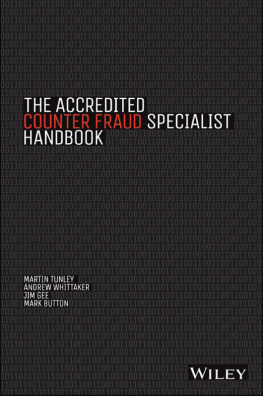
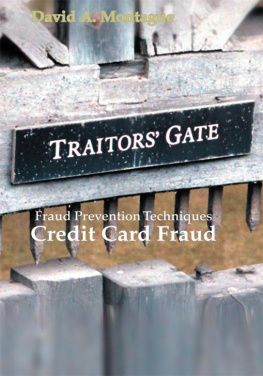


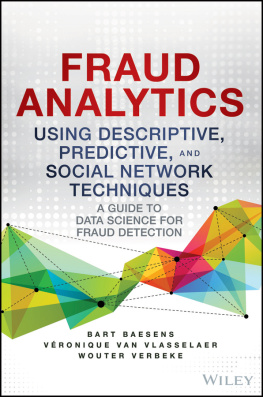
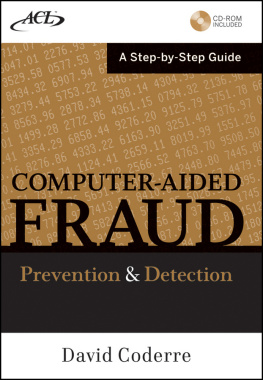

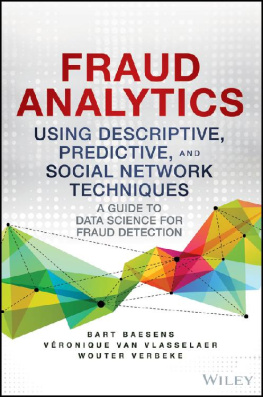


 INTRODUCTION
INTRODUCTION